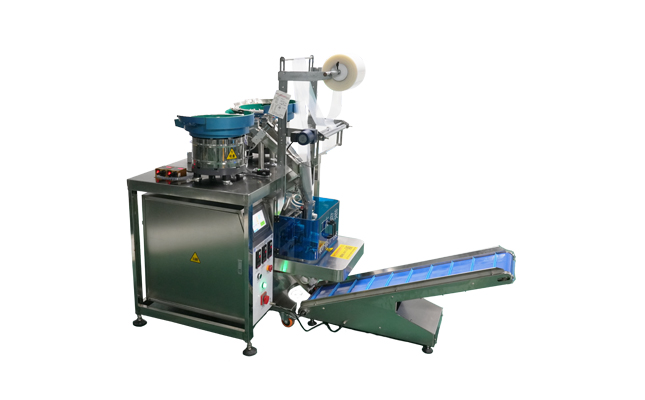
Date | 2023-05-05 11:23:33
Screw packing machines are becoming increasingly popular in the manufacturing industry due to their ability to efficiently and accurately package products. These machines use a conveyor belt to move products to the packaging area, where they are then filled with screws and sealed.
One of the main benefits of using screw packing machines is the increase in efficiency. These machines can package products at a much faster rate than manual labor, and they can do so without sacrificing accuracy. This is because the machines are programmed to fill each package with the exact number of screws needed, eliminating the risk of over or underfilling.
In addition to increased efficiency, screw packing machines also offer cost savings. By using machines to package products, companies can reduce the amount of labor needed to package each item, which can result in significant cost savings over time. Additionally, these machines can operate around the clock, further increasing their value.
Screw packing machines also offer a higher level of accuracy than manual packaging. Each package is filled with the exact number of screws needed, ensuring that the product is consistent and of high quality. This level of accuracy is difficult to achieve with manual packaging, where human error can result in over or underfilling, leading to inconsistencies in the final product.
Another benefit of using screw packing machines is the ability to customize packaging. These machines can be programmed to package products in a variety of ways, allowing for greater flexibility in the manufacturing process. This can be especially beneficial for companies that produce a wide range of products and need to package them in different ways.
Finally, screw packing machines are easy to use and maintain. Most machines come with user-friendly interfaces, making them easy to operate, even for those with little experience. Additionally, maintenance is minimal, with most machines requiring only basic upkeep to keep them running smoothly.
In conclusion, screw packing machines offer a variety of benefits to the manufacturing industry, including increased efficiency, cost savings, higher accuracy, customization options, and ease of use and maintenance. As technology continues to evolve, it is likely that these machines will become even more advanced, further improving their value to manufacturers.With the growing demand for automation and efficiency in manufacturing, screw packing machines have become an essential tool for many companies. These machines can be found in a variety of industries, including automotive, electronics, construction, and more.
In the automotive industry, screw packing machines are used to package small parts such as screws, nuts, and bolts. These parts are essential to the manufacturing process, and ensuring that they are accurately and efficiently packaged can make a significant difference in production time and costs.
Similarly, in the electronics industry, screw packing machines are used to package small components such as resistors, capacitors, and diodes. These components are delicate and must be packaged with care to prevent damage, which can result in increased costs and production delays.
In the construction industry, screw packing machines are used to package fasteners such as nails, screws, and bolts. These fasteners are used in a wide range of construction projects and ensuring that they are packaged accurately and efficiently is essential to meeting production deadlines.
As the manufacturing industry continues to evolve, it is likely that the demand for screw packing machines will continue to grow. Manufacturers are constantly seeking ways to increase efficiency and reduce costs, and these machines offer a solution to both.
In conclusion, screw packing machines have become a valuable tool in the manufacturing industry, offering a range of benefits including increased efficiency, cost savings, higher accuracy, customization options, and ease of use and maintenance. With the continued development of technology, it is likely that these machines will become even more advanced, further improving their value to manufacturers across a wide range of industries.
